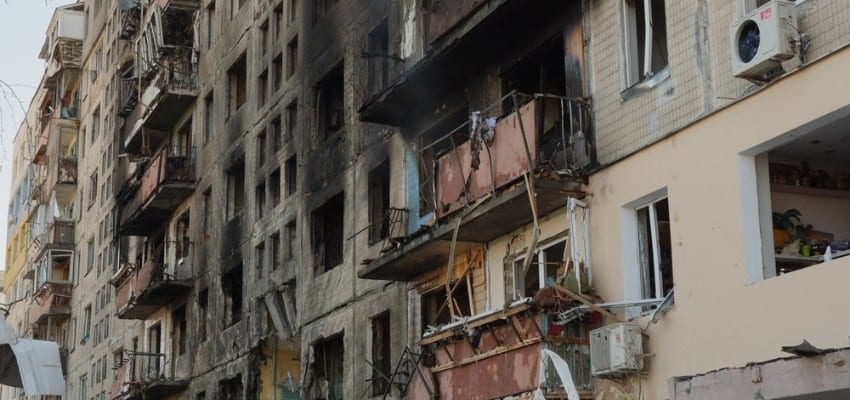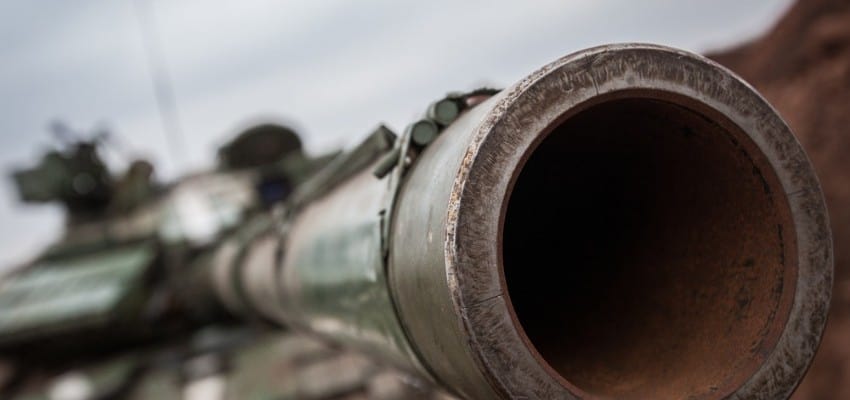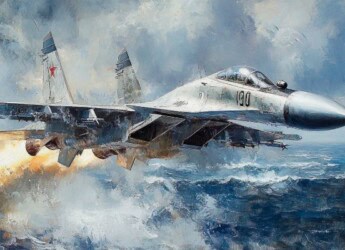|
|
Content Assessment: A New Threat? Ukraine Conflict Assessments in Maps (March 29 - 31, 2022)
Information - 96%
Insight - 95%
Relevance - 93%
Objectivity - 92%
Authority - 94%
94%
Excellent
A short percentage-based assessment of the qualitative benefit of the post highlighting the recent Ukraine conflict assessments in maps from the Institute for the Study of War.
Editor’s Note: One of the most accurate and detailed sources for ongoing updates on the Ukraine crisis is the Ukraine Conflict Update from the Institute for the Study of War. The Institute for the Study of War (ISW) is a 501(c)(3) organization and produces strictly non-partisan, non-ideological, fact-based research. ISW seeks to promote an informed understanding of war and military affairs through comprehensive, independent, and accessible open-source research and analysis. ISW’s research is made available to the general public, military practitioners, policymakers, and media members. Providing a daily synthesis of key events related to the Russian aggression against Ukraine, ISW updates may benefit cybersecurity, information governance, and legal discovery professionals as they follow the business, information technology, and legal trends and trajectories impacted by and stemming from the current Ukraine conflict.
Assessment and Maps*
Ukraine Conflict Assessments – An Overview in Maps
- Institute for the Study of War (ISW), Russia Team
- Critical Threats Project (CTP), American Enterprise Institute
General Assessment Background Info
- ISW systematically publishes Russian campaign assessments that include maps highlighting the assessed control of terrain in Ukraine and main Russian maneuver axes.
- These maps augment daily synthetic products that cover key events related to renewed Russian aggression against Ukraine.
The Risks of a Russian Ceasefire Offer
Report by Nataliya Bugayova
Ukraine may soon face a new threat in this war—Russia’s ceasefire offer. It seems odd to say that a ceasefire is a threat. Once war begins, the default position in the West is to seize the earliest opportunity to “stop the fighting.” But while some ceasefires lead to peace, others lead to more war—as the Russians have repeatedly shown. The frontlines frozen in a ceasefire set the conditions for the negotiations and reconstruction that follow. They also set conditions for future conflict. Those seeking enduring peace in Ukraine must resist the temptation to accept a Russian ceasefire offer that sets conditions for renewed conflict on Russia’s terms or gives Russia leverage on Ukraine with which to force concessions and surrenders.
Russia is on the ropes in Ukraine today. It has not achieved any of Putin’s central objectives. The Russian army is suffering damage that will take years to repair if repair is even possible. Ukrainian forces are conducting counteroffensive operations, steadily pushing the Russians back from their positions around Kyiv and Kharkiv. A ceasefire can stop the fighting, for a time, but it will also give Moscow a chance to reset and prepare to renew the fighting on more advantageous terms. Vladimir Putin has used this approach successfully in Syria and Ukraine since 2014. He will likely try to use it again soon, and we must recognize it for what it is—a trap.
Properly supported, the Ukrainians may well be able to reclaim much of their territory from the exhausted and demoralized Russian forces. The West must back Kyiv in that endeavor, providing military aid that Ukraine needs and disregarding Russian ceasefire offers meant to freeze the battlefield in what is likely close to the best configuration Putin can hope for and in a way that supports maximalist Russian “peace” demands that have only one goal—stripping Ukraine of its sovereignty.
Russian Offensive Campaign Assessment on March 31, 2022
Key Takeaways
- Ukrainian forces successfully conducted local counterattacks around Kyiv, towards Sumy, and in Kherson Oblast and will likely take further territory—particularly northwest and east of Kyiv—in the coming days.
- Russia is withdrawing elements of its damaged forces around Kyiv, Chernihiv, and Sumy for redeployment to eastern Ukraine, but these units are unlikely to provide a decisive shift in Russian combat power.
- Ukrainian forces continued to repel Russian assaults throughout Donetsk and Luhansk Oblasts, and Russian forces failed to take territory in the past 24 hours.
- Russian forces continue to steadily advance in Mariupol.
- Russia’s preplanned spring draft will begin on April 1 and does not appear abnormal from Russia’s typical conscription cycle. Newly drafted conscripts will not provide Russia with additional combat power for many months.
- The Kremlin is likely accelerating efforts to establish quasi-state entities to govern occupied Ukrainian territory.
Ukraine Conflict Maps - 032922-033122
Read the latest Ukraine Conflict updates from the Institute for the Study of War
* Shared with direct express permission from the Institute for the Study of War (ISW).
About the Institute for the Study of War Research Methodology
ISW’s research methodology relies on both primary and secondary sources, enabling researchers to develop a comprehensive understanding of the situation on the ground. In order to analyze military and political developments in any given area, ISW’s research analysts must wholly understand the systems of enemy and friendly forces. They must also understand the population demographics, physical terrain, politics, and history of that area. This lays the analytical foundation for understanding the reasons for particular developments and fulfilling their assigned research objectives. ISW analysts also spend time in places like Iraq, Afghanistan, and elsewhere in order to gain a better understanding of the security and political situation and to evaluate the implementation of current strategies and policies. Our researchers compile data and analyze trends, producing a granular analysis of developments in areas of research, producing an accurate, high-resolution, timely, and thorough picture of the situation. ISW’s research methodology guarantees its success and commitment to improving the nation’s ability to execute military operations, achieve strategic objectives, and respond to emerging problems that may require the use of American military power.
About the Institute for the Study of War
The Institute for the Study of War advances an informed understanding of military affairs through reliable research, trusted analysis, and innovative education. We are committed to improving the nation’s ability to execute military operations and respond to emerging threats in order to achieve U.S. strategic objectives. ISW is a non-partisan, non-profit, public policy research organization. Learn more, get involved, and contribute today.
Additional Reading
- [Annual Update] International Cyber Law in Practice: Interactive Toolkit
- Data Embassies: Sovereignty, Security, and Continuity for Nation-States
Source: ComplexDiscovery



























